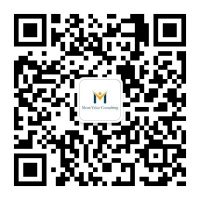What to include in your Resume & Dos and Don’ts during an interview
The graduation season is coming soon. In May this year, a large number of graduates will enter the job market and face the challenges of society. For fresh graduates, the first step to “attack” the famous enterprises is to show their own strengths, to show the best quality of their employers.
How to write a resume that will impress an employer during your job search?
Maximize your strengths and highlights?
After successfully passing the resume screening, what should I know in the interview process?
There are five steps to take before planning your career, including:
- Self-assessment
- Skills assessment
- Set career goals and timetables
- Evaluate career development plans
- Know your employer’s needs
Only when you know yourself well enough to know what you want can you start on an accurate career path at the beginning of your career development. Therefore, self-evaluation and self-assessment of skills are particularly important.
Then, you can set your career direction and specific schedule according to your own situation. At the same time, know yourself and know the enemy can win a hundred battles, know yourself at the same time also need to understand the needs of the employer, do know.
After the initial general direction is determined, it is time to search for positions in the desired field and submit them.
Search the Internet, newspapers and trade magazines for job pages, job sites, job boards, LinkedIn job ads, and the latest information on companies of your choice. Also, network with colleagues, friends, family, and industry professionals and make recommendations for yourself if necessary. In addition, keep an open mind, broaden your options, and be flexible in terms of salary and promotion opportunities to increase your chances of landing the desired position.
Once you’ve found a job, how do you decide if it’s a good fit for you, or if it’s worth applying for? Start with three things:
- First, determine if the skills and abilities required for the position match your own, such as your skills and interests, and whether the position takes full advantage of your strengths and abilities.
- Second, look at the company profile and its culture to see if its values align with those you hold and if you have a leadership plan and a clear career plan for your employees.
- Finally, check to see if the company has a training program for its employees and if it will put effort into improving the skills they need to give them the opportunity to grow.
The above points, for the graduates who just enter the job market, are the issues that need to be paid attention to.
When you’re ready to submit a job offer, remember that your resume is your personal marketing tool.
You can make two versions of your resume, one generic and one customized. The customized version is built on the basis of the general version, according to different job requirements, to make additions, deletions, adjustments, so as to be more targeted. Your CV should be a clean, clear format with precise words and include valid information about your education, academic achievements, awards, work experience, extracurricular activities and interests. When describing your work experience, be realistic, specific, and highlight your contributions. Your most recent work experience should be as detailed as possible.
In addition to your resume, you should also include valuable certificates and supporting documents.
If you go through the resume filter and come to the interview, you need to know more. Round after round of interviews is no different from the battle of the field, should not be taken lightly at any time.
Dos and Don’ts during interview
Dos:
Do some research about the company’s background, recent news, industry trends, etc
Do your research for the position
Develop effective presentation skills and be as relaxed as possible
Maintain a confident attitude and maintain eye contact during the interview
Give examples of your background and accomplishments
Be prepared to ask your interviewer questions that are short and to the point, preferably new
Don’ts:
Don’t be late or negative
Don’t introduce yourself in a scripted way on your resume
Don’t lie or embellish your experience
Don’t initiate salary/benefits discussions during the interview



